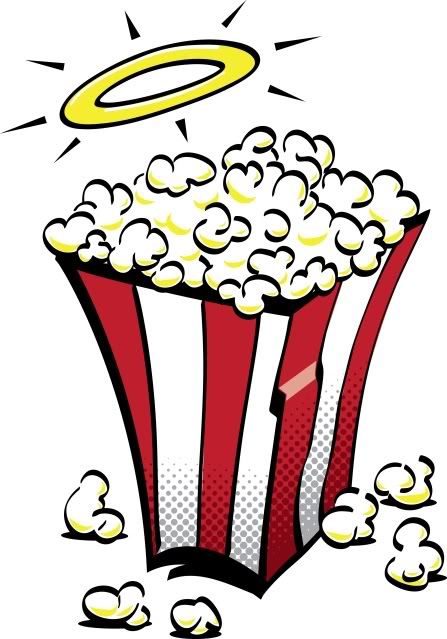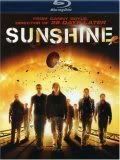
March 19, 2010
Friday Rewind: Sunshine (2007)
***Originally posted on February 10, 2008***
Should I see it?
If you don't mind lousy endings.
Should I see it?
If you don't mind lousy endings.
Short Review: The second half doesn't mesh well with the first. Its like having a tilt-a-whirl at an festival that also has a hot dog eating contest. Sure, both on their own are fun but when mixed...
Danny Boyle (28 Days Later, Millions, Trainspotting) is one of those directors who can be relied upon to build films that reinvigorate my love for cinema. Unfortunately, he is also one of those directors who can be relied upon to frustrate me by pulling me into a narrative only to fall apart in the final act. His works all begin wonderfully. They are visually engaging, his set ups are perfect and his talents are in full effect. Following the reversal scene in the middle of the film (at the literal middle of all stories there is a reversal where the plot is turned on its ear) Boyle's works all begin to stumble and eventually fall. Like his other works (except Millions which is simply dreadful) Sunshine is mostly brilliant with a touch of lame tossed in - which is a little like a chef spitting in your manicotti florentine for flavor. It does matter how good the cuisine is if the chef botches a part of the plate.
To give this film credit, it is a very smart work and will likely impress most lovers of science fiction. Until the final moments of the film this piece works brilliantly and provides one of the more engrossing science fiction films of recent years. A group of astronauts are sent on a mission to reignite the sun. The sun has begun to dim and the cast must send a payload of explosives into it in order to save all of humanity from dying in darkness. Their ship is the second mission to perform this act, the first group disappeared. As the group approaches the burning globe they slowly descend into insanity, paranoia and fear. Things turn stranger when they come across the first ship drifting in space, sending out a distress signal. This is the makings of a thoughtful character-centered piece and for the most part it delivers. Screenwriter Alex Garland's script is an intelligent and well crafted work and is rich in character and handles the narrative with a masterful hand. The brewing conflicts between the astronauts set against the slowly building stress of their circumstances is a thrill to watch. The elements of insanity and spirituality are likewise interesting. While I hammered home that the ending of this piece is clunky and disappointing, I also want to make certain you understand the piece leading up to it is just as marvelous.
***SPOILER ALERT***
The rest of this review has plot spoilers, consider yourself warned.
The rest of this review has plot spoilers, consider yourself warned.
The cast is populated with some solid actors who are given meaty scenes to perform. Cillian Murphy (Red Eye), Michelle Yeoh (Crouching Tiger/Hidden Dragon), Chris Evans (Fantastic Four) and Cliff Curtis (Whale Rider) all flourish in their roles and succeed at bringing this strange story to life. Curtis in particular stands out as the spiritually drifting Dr. Searle. Curtis' performance sets up the film's undertones of insanity and prepares the way for the final acts battle with the ghost (or is he real) of the first ship's captain, Capt. Pinbacker (Mark Strong). Curtis is at once off his nut while also being completely rational and calm. His eventual sacrificial death by exposing himself to the sun is one of the film's better scenes.
The ghostly Captain Pinbacker brings us to the downfall of the piece. As you can guess, the first ship is haunted and the crew of the second ship begins to see strange things and then people start to die. This change in direction throws the film off the trail and it fails to regain its footing as Boyle and company then descend into a pedestrian Alien-esque structure where we wait for the next crew member to get bumped off by the violent Pinbacker. This second half doesn't mesh well with the first. This is reminiscent of Boyle's 28 Days Later which has a first half that is easily the best horror film of the last thirty years but then turns into another lame flick through the introduction of an exterior and unneeded villain (the soldiers in 28 Days Later/Captain Pinbacker in this film). If Garland and Boyle would have relied more on the strength of their story and kept with the pressure cooker they constructed from the beginning they would have made a classic.
To summarize, there is plenty to recommend this film. Even with its faults, it is still heads and shoulders above most science fiction fare.

***SPOILER ALERT***
Again, I'm gonna ruin the plot
Again, I'm gonna ruin the plot
Worldview:There is a serious spiritual side to this film and its not all good. The mystical Dr. Searle fawns over the sun and looks to find spiritual meaning in it. He stands before the sun with eye protection and bathes in its light. His sensual reaction to the light heightens the spiritual tone of these scenes. As the characters approach the sun Searle gets weirder in his thoughts and actions, like a zealot coming closer to holy ground.
In the end of the film, Captain Pinbacker, the ghostly captain of the first ship, is a frightening specter that attacks the crew members. He is a blurry demonic image who rambles about God making statements like "For seven years I spoke with God. He told me to take us all to Heaven." His destructive religious fervor is the main thrust of what he has become. While this may have been an attempt to cast all religious people in a poor light (pun unintended) the handling of this part of the script is so unfocused and inorganic that Pinbacker becomes a mushy stereotype rather than a polemic caricature.
The themes of man's solitary relation with God are touched upon but not investigated except under the shadow of Pinbacker's raging vengeance. In a story where people have been sent out into the vastness of space heading towards their probable doom, the lack of God in the proceedings (other than as a propellant for the villain) is illogical and a let down. People grow more towards God when alone and when under stress. It is interesting that some characters turn to paganism to quench this search for the Almighty but none of them seem to consider God, as he's normally presented, as a viable solution. The wispy references to spiritual matters only serves to undermine the otherwise intellectual flow of the piece. It's not that this movie should have had a never ending stream of Jesus references, but to remove him completely leaves a hole in the works. Ultimately, the work strives to be spiritual without committing to any theological strain and it therefore ends up being completely nonsensical in this regard. In other words, the script is so concerned with being abstract that it doesn't even do us the favor of being wrong - its just senseless.
Cautions: There's plenty of violence and on-screen death. This is a movie for adults.
Related Reviews:
Cillian Murphy movies
Batman Begins (2005)
Red Eye (2005)
Other Critic's Reviews:
DarkMatters: The Mind of Matt
Cinepinion
Labels: Cillian Murphy, Cliff Curtis, film, Michelle Yeoh, movie review, science fiction
Share
Previous Posts




Good News Film Reviews LLC 2004-2010 - used with permission
Images, video and titles are the property of their respective copyright holders. Good News Film Reviews LLC claims no ownership or connection to them.
The views expressed on this site are not the opinion of any advertiser or external entity.
While we take care to only link to responsible entities, Good News Film Reviews LLC takes no responsibility for the content linked from this site. There are sharks in the waters. Surf at your own risk.
The Template is generated via PsycHo and is Licensed.






















0 Comments:
Post a Comment
<< Home